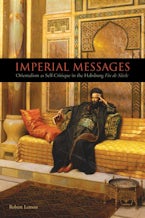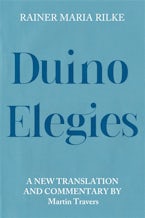
Title Details
344 Pages
22.8 x 15.2 cm
Series: Studies in German Literature Linguistics and Culture
Series Vol. Number:
154
Imprint: Camden House
Orienting the Self
The German Literary Encounter with the Eastern Other
- Description
- Contents
- Reviews
Follows the evolution of the Orient as a positive literary device in German literature and demonstrates how it was used to explore subjectivity and the possibility of wholeness.
For centuries, Europe's eastward gaze has been wary if not hostile. Medieval man envisaged grotesque beings at the world's edge and scanned the steppes and straits on the immediate horizon for the Asian or Arab hordes that might swarm across them. Through the Crusades, the early modern era, and the age of imperialism, Europeans regarded the Eastern subject as requiring both "discovery" and conquest. Conveniently, the "Oriental" came to represent fanaticism, terrorism, moral laxity, and inscrutability, among other stereotypes. The list of German literary works that reinforced negative clichés about the East is long, but Orienting the Self argues for the presence in the Germanliterary tradition of a powerful perception of the East as the scene of desire, fantasy, and fulfillment. It follows the evolution of the Orient as a literary device and demonstrates how it was used to explore subjectivity and the possibility of wholeness. The five works treated in this study - Parzival, Fortunatus, Effi Briest, Heinrich von Ofterdingen, and The Magic Mountain - are narratives of development in which the encounter with the East is central to the progression toward selfhood and the promise of fulfillment.
Debra N. Prager is Associate Professor of German at Washington and Lee University.
For centuries, Europe's eastward gaze has been wary if not hostile. Medieval man envisaged grotesque beings at the world's edge and scanned the steppes and straits on the immediate horizon for the Asian or Arab hordes that might swarm across them. Through the Crusades, the early modern era, and the age of imperialism, Europeans regarded the Eastern subject as requiring both "discovery" and conquest. Conveniently, the "Oriental" came to represent fanaticism, terrorism, moral laxity, and inscrutability, among other stereotypes. The list of German literary works that reinforced negative clichés about the East is long, but Orienting the Self argues for the presence in the Germanliterary tradition of a powerful perception of the East as the scene of desire, fantasy, and fulfillment. It follows the evolution of the Orient as a literary device and demonstrates how it was used to explore subjectivity and the possibility of wholeness. The five works treated in this study - Parzival, Fortunatus, Effi Briest, Heinrich von Ofterdingen, and The Magic Mountain - are narratives of development in which the encounter with the East is central to the progression toward selfhood and the promise of fulfillment.
Debra N. Prager is Associate Professor of German at Washington and Lee University.
Introduction
The Vision of the Eastern Other in Wolfram von Eschenbach's Parzival
Mapping the World and the Self: Fortunatus and the Age of Discovery
Discovering the "Great Orient within Us": Novalis's Heinrich von Ofterdingen
The Oedipal and the Orient in Theodor Fontane's Effi Briest
"The Asian Principle" in Thomas Mann's Der Zauberberg
Conclusion
Bibliography
Index
The Vision of the Eastern Other in Wolfram von Eschenbach's Parzival
Mapping the World and the Self: Fortunatus and the Age of Discovery
Discovering the "Great Orient within Us": Novalis's Heinrich von Ofterdingen
The Oedipal and the Orient in Theodor Fontane's Effi Briest
"The Asian Principle" in Thomas Mann's Der Zauberberg
Conclusion
Bibliography
Index
"[Prager's] readings of individual works are clearly written, carefully researched, and closely argued. In the end, a conciliatory vision of the German encounters with the East emerges from Orienting the Self. . . . Prager's sensitivity toward the plight of [the main] characters [of the five works she focuses on] and her sympathy for the redemptive potential of their encounters with the East make her work a valuable contribution to the study of a central theme across several centuries of German literature." Todd Kontje, MONATSHEFTE
Hardcover
9781571135940
October 2014
$125.00 / £105.00
Ebook (EPDF)
9781782043430
October 2014
£24.99 / $29.95
Title Details
344 Pages
2.28 x 1.52 cm
Series: Studies in German Literature Linguistics and Culture
Series Vol. Number:
154
Imprint: Camden House













